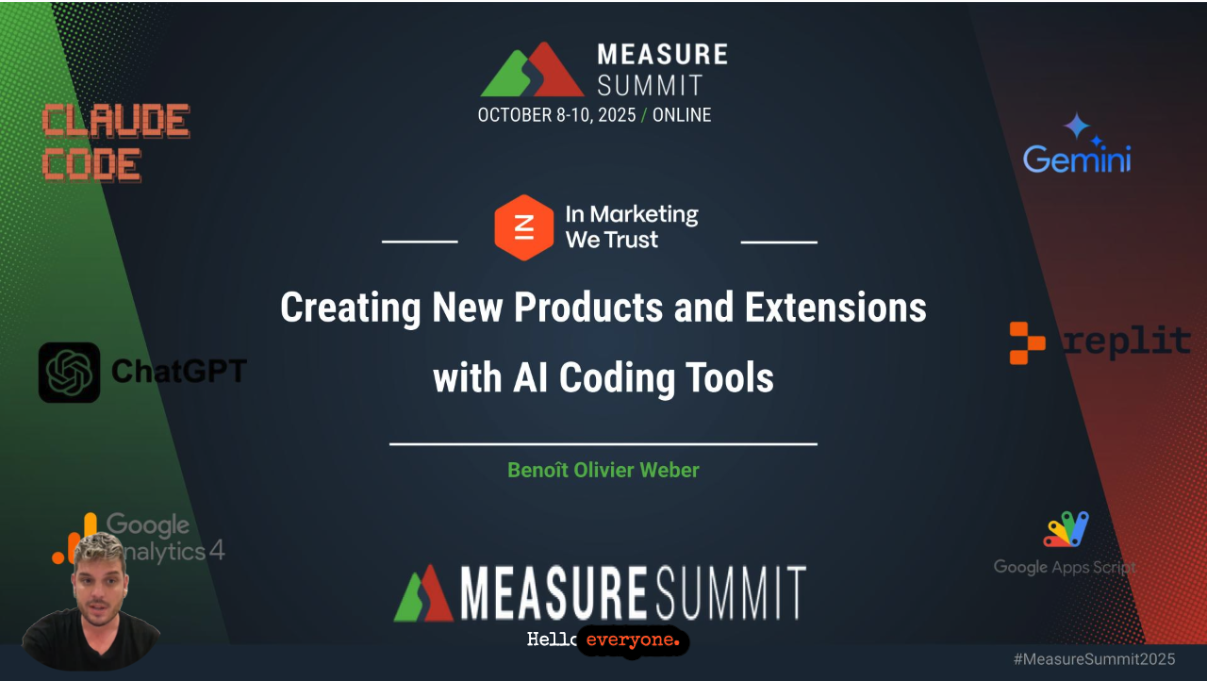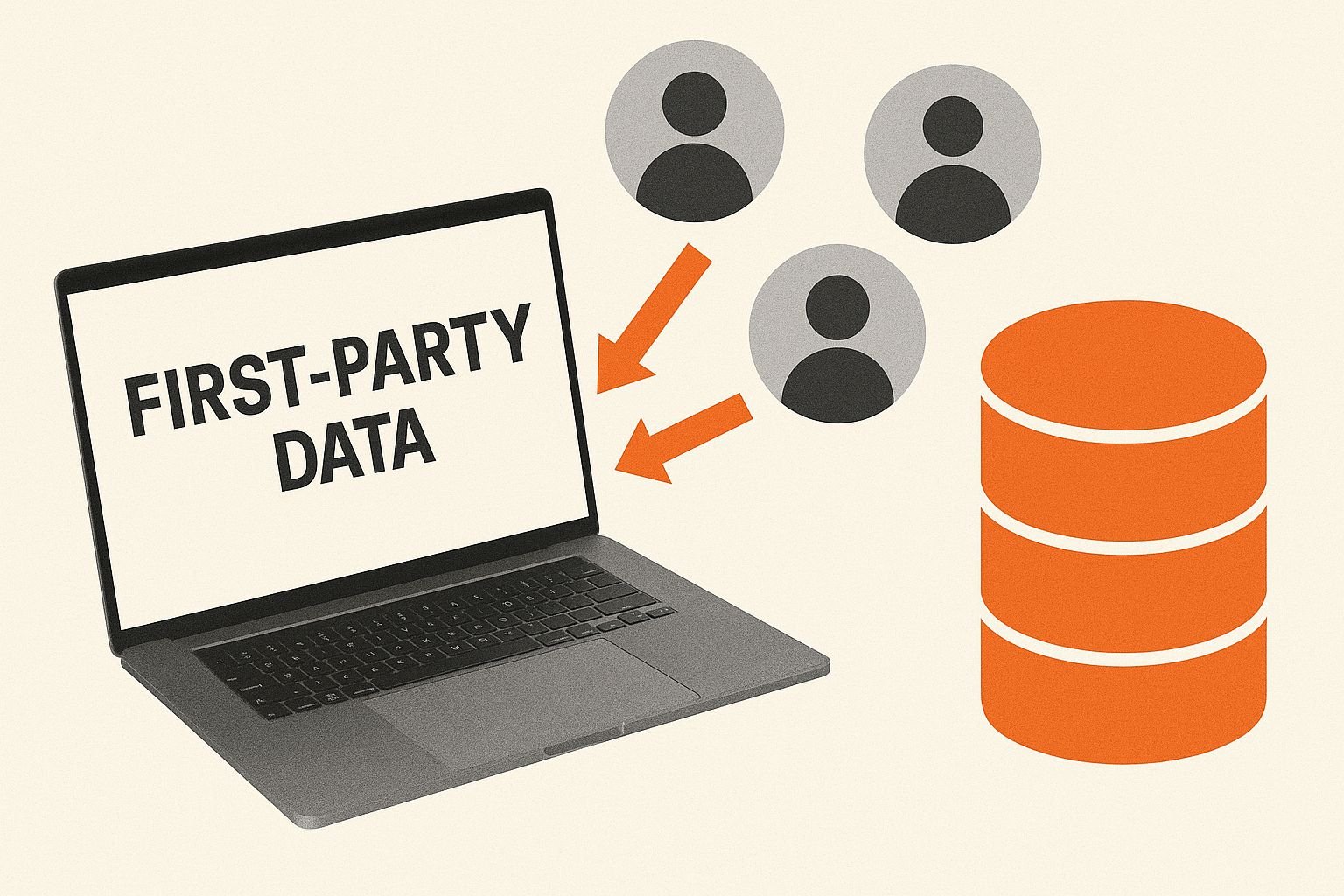At In Marketing We Trust, we nurture a remote international and culturally-diverse environment that works wonders not only for our team but also for our clients. We try to provide more clarity and insight around remote work in a variety of roles, by presenting you one by one our amazing team members, their journeys, struggles and lessons. In case you’re considering making a change (be it into a remote job or a new career), we’ve got you covered! Our Head of Analytics has made both of these changes, simultaneously, when he jumped from an Engineering background into a remote Marketing role.
Interview with Head of Analytics
Part of the Leadership team, Ben has been with IMWT for 5 years and succeeded in being a highly skilled and appreciated Analytics Master. Currently based in Vietnam, Ben’s journey into discovering and following his passion is inspiring (to say the least) and hopefully, it will provide you with some practical solutions on how to better manage this transition. If you’re not there yet, we hope his story might give you a nudge in the right direction.
It’s commonly known that the beginning is the hardest. What was the hardest thing for you to overcome when starting at IMWT?
I started at IMWT as an intern. I am an Engineer by training and I took this opportunity to reorient myself to Marketing (my 30s life crisis, I suppose). The biggest challenge for me was to start working remotely while discovering a whole new professional world. I had to get familiar with a lot of new technologies, concepts and processes. The ‘hardest’ part was to define the path I wanted to take. I tried out most aspects of digital marketing from link building, outreach, content, technical SEO, CRO. But as soon as I discovered Google Analytics and Google Tag Manager more in detail, it became evident. It was clear to me to specialise myself in Web Analytics and on top of it, I could do it from home!
What was your first remote job? How was it?
My first remote job was at IMWT. It has been 5 years, so I suppose everything went well! To be honest, I wish I would never have to go back to an office. Everything put in perspective, it does not make much sense to me to physically be in the presence of the rest of my team or clients. With the current technologies, I find myself much more efficient and comfortable working from home, since I found my setup.
What motivated you to pursue a remote job?
I always wanted to work from home. I had this dream for quite some time as I spent years losing time and headspace in transportation. At that time, it made no sense to me to be so dependent on the location. Not only did it impact how effective I could be during office hours but also my motivation to go to work. I got quite distracted while sharing an office with other people. I find it difficult to properly deliver while being regularly ‘disturbed’ by people sharing your space. Remote work gave me the possibility of doing a job that I like from wherever I want to live. It is sad to sort of force people to live in big cities and metropolitan areas just to find the job they like or can do. Obviously, remote jobs do not apply to any industry or positions, but in my case, this makes much sense to do so.
What are your best tips on working remotely?
Properly define work hours and workspace. Plan your day ahead but also allow yourself time to rest whenever required. It is better to take a small break, recover than trying to ‘finish the day’. My escape is the beach. I am living by the sea which makes it very easy for me to disconnect for work and regain focus. Working out loud is also primordial. Communications with the rest of the team is a must-do and must-have. I work from home but I still do like to work and interact with people.
What is the most challenging part of your role as Head of Analytics?
More than 90% of the analytics setups that I come across are somehow broken – facing problems with data integrity, accuracy, consistency preventing the client from properly reporting on performance. Before we can undertake any analysis or optimisation, the tracking needs to be repaired. The technicalities to fix it and obtain proper analytics can be challenging to explain. That’s often coupled with a lack of usage and knowledge of Google Analytics itself, and the implementation also requires development resources who are rarely confident with data layers. That’s why I always pair implementations with training, use clear processes and templates and dedicate time to explain the different phases to the different stakeholders through the whole implementation cycle. Good communication is a keystone for a good project!
What is the most rewarding part of your role?
Getting the people interested in data. Through the whole process, I keep on preaching on the power of good data and good tools. However, this is worthless if people are not getting involved. I love when the client gets confident with the tool, its features and starts to deeply analyse and challenge the data. Good data is an investment and it requires time, effort, discipline and governance, but it can be worthless if it is not used. The ultimate goal is to optimise user experience and improve general performance. Data can help you achieve that if you take the time to do so.
How do you manage to lead a remote team effectively?
In my opinion, the most important part is communication. It is relatively easy to misinterpret, misunderstand, or miscommunicate with the rest of the team. Distance is adding a layer of complexity. It forces you to be clearer in your specifications, processes, planning and briefs. This is especially the case if you need to delegate work. Emails, Slack, Teamwork, Zoom (any tools that facilitate project management and communication) are absolutely necessary. Without the proper tools, that would be a real challenge. For my role as Head of Analytics, more specifically, I created a framework that limits and leaves close to no room for error or interpretation. Clear processes, best practices, templates and knowledge sharing on top of proper communication (written or oral) are keys to success.
Your best tips for someone looking to start out in the Web Analytics world?
There are many available resources on Web Analytics: official documentation, detailed blog articles, videos, communities, forums, conferences and training are always a good starting point but to me, the easiest and best way to learn is by combining your learnings with practice. Experience will be key here. Try it out by yourself. Read, try, test, play, practice on your own.










